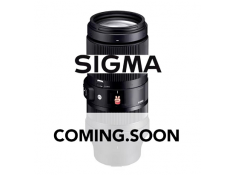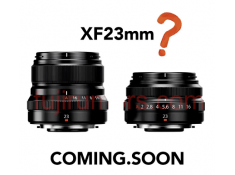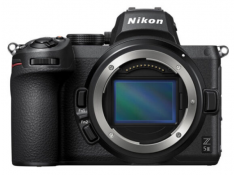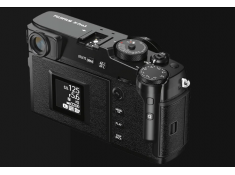Highest Megapixel Camera You Can Buy In 2024:More Than 100 Million Pixels!
Friday 10 May 2024
 19.8k
19.8k
 Reproduction without the author's authorization is prohibited
Reproduction without the author's authorization is prohibited
You may have heard of the megapixels war. Both enthusiasts and manufacturers are pursuing higher pixels at a certain period. Many cameras and even mobile phones claim to have more than 100 million pixels! However, are higher pixels better?
higher pixels better?
The relationship between pixel count and image quality isn't as simple as "higher is better." While a higher pixel count produces higher-resolution images, which means more detail and the ability to print larger photos without losing quality, there are other factors to consider.
Sensor size is crucial because it determines how much light the camera can capture. A larger sensor generally means better image quality, especially in low-light conditions. If the sensor is smaller and has a higher pixel count, the individual pixels must be smaller, which can result in more noise and less sharpness in the image.
Also, pixel size matters. Larger pixels capture more light and produce sharper images. So a larger camera with fewer pixels will likely take better photos than a smaller camera with more pixels.
Introduce no parameters other than pixels are required
Camera with over 100 million pixels
Fujifilm GFX 100 II
The Fujifilm GFX 100 II is a medium format camera that boasts an impressive 102 megapixels sensor. This high-resolution sensor allows for exceptional image quality and detail, making it a powerful tool for professional photographers. The camera was announced on September 12, 2023, and it represents a significant step in medium format photography, offering a blend of high resolution with advanced features and a redesigned sensor for speed and performance.

Hasselblad X2D 100C
The Hasselblad X2D 100C is a state-of-the-art medium format mirrorless camera that features a 100-megapixel backside-illuminated CMOS sensor. This sensor size and resolution allow for unparalleled image detail and dynamic range, catering to the needs of high-end photography professionals.

Phase One XF IQ4 150MP
The Phase One XF IQ4 150MP is a high-end medium format camera system that features a 150-megapixel backside-illuminated (BSI) sensor. This sensor is one of the largest and most detailed available on the market, providing exceptional image quality for professional photographers.

Hasselblad H6D-400C Multi-Shot
The Hasselblad H6D-400C Multi-Shot is a remarkable medium format camera that, through its Multi-Shot technology, can produce images with an astounding 400 megapixels resolution1. This camera is designed for the highest imaging requirements, capturing every subtle nuance of the subject with true color and an astonishing moiré-free level of detail. It’s particularly suited for photographing subjects that require the utmost color accuracy and detail, such as fine art, cultural artifacts, and intricate designs.
The resolution of film (especially 35mm film) is often compared to the pixels of a digital sensor. However, film does not have pixels like digital images. It captures images continuously. This comparison is complicated because it depends on factors such as the quality of the film, the scanner used for digitization, and the conditions under which the film was shot and developed.
As a rough estimate, to scan most detail on a 35mm photo, you'd need about 87 megapixels. This is because 35mm film measures 24 x 36mm, or 864 square millimeters, and requires approximately 0.1MP per square millimeter to capture the detail present in the film. However, this is a simplification because each "film pixel" represents real R, G, and B data, as opposed to Bayer interpolated data from a digital camera sensor.
In pure numbers, no, film has no more than 100 million pixels. But it's worth noting that film can resolve extremely fine details with a natural look, unlike how digital sensors capture images. The finest details in film may not be captured with as much contrast as coarse features, but film's ability to naturally record both fine and coarse details is one of the reasons it is still valued in certain types of photography.
Does film have more than 100 million pixels?
Many people are debating whether the pixels of film are higher than those of current mirrorless cameras? There is a view that the resolution of film, if quantified into pixels, would be much higher than that of today's mirrorless cameras. If so, is it possible for film to join the 100 million pixel club?
The resolution of film, particularly 35mm film, is often compared to digital sensors in terms of pixels. However, film doesn’t have pixels in the way digital images do; it captures images continuously. The comparison is complex because it depends on various factors such as the film’s quality, the scanner used for digitization, and the conditions under which the film was shot and developed.
For a rough estimate, to scan most of the detail on a 35mm photo, you would need about 87 Megapixels. This is because 35mm film is 24 x 36mm, or 864 square millimeters, and approximately 0.1MP per square millimeter is needed to capture the detail present in film1. However, this is a simplification, as each “film pixel” represents true R, G, and B data, unlike the Bayer interpolated data from digital camera sensors.
In terms of sheer numbers, no, film does not have more than 100 million pixels. But it’s important to note that film can resolve extremely fine details with a natural look that is different from the way digital sensors capture images. The finest details in film may not be captured with as much contrast as coarser features, but film’s ability to record fine and coarse details naturally is one of the reasons it is still valued for certain types of photography.
However, I think photographers who are still using film photography in 2024 will not choose to use film because they like the resolution of the photos. If you also like the special atmosphere brought by film, you can check out our article about point-and-shoot film cameras:10 Best Point And Shoot Film Cameras In 2024.
Statement: all contents and remarks made by K&F CONCEPT 's intranet friends only represent themselves and do not reflect any K&F CONCEPT 's opinions and views.
-
 Sigma may release a new l mount zoom lensTuesday 01 April 2025
Sigma may release a new l mount zoom lensTuesday 01 April 2025 -
 Fujifilm may launch a new XF23mm pancake lensFriday 28 March 2025
Fujifilm may launch a new XF23mm pancake lensFriday 28 March 2025 -
 Nikon Z5ii will be released on April 3Friday 28 March 2025
Nikon Z5ii will be released on April 3Friday 28 March 2025 -
 Nikon Z5ii will be officially released next weekWednesday 26 March 2025
Nikon Z5ii will be officially released next weekWednesday 26 March 2025 -
 Fujifilm plans to continue to promote X-Pro and X-E series productsTuesday 25 March 2025
Fujifilm plans to continue to promote X-Pro and X-E series productsTuesday 25 March 2025








